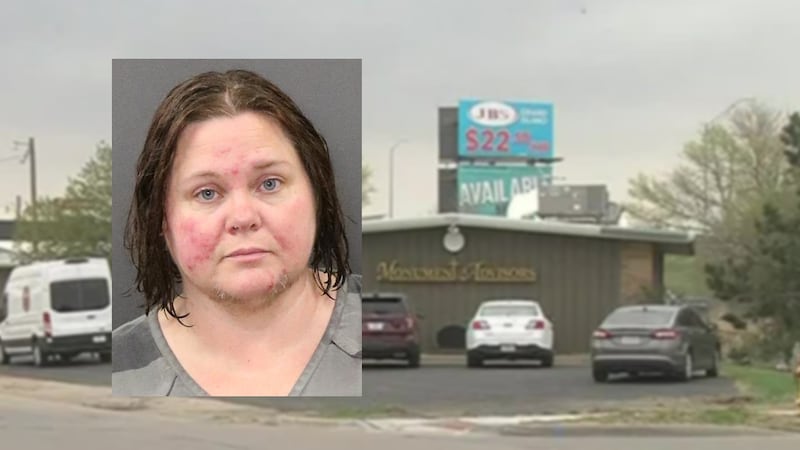Nebraska’s U.S. senators will decide on $9.4B funding cuts from public media, foreign aid
Nebraska Public Media could lose 16% of its annual budget as Trump continues push against NPR, PBS
LINCOLN, Neb. (Nebraska Examiner) - The U.S. Senate has until the end of the week to decide whether to claw back $9.4 billion the federal government had already approved for international aid and public media.
The legislation that passed the House, with backing from all three House members in the Nebraska delegation, would revoke more than $8 billion from several foreign aid programs run by the U.S. State Department and the U.S. Agency for International Development.
It also would rescind the $1.1 billion Congress approved for the Corporation for Public Broadcasting for fiscal years 2026 and 2027, which funds the Public Broadcasting Service and National Public Radio. If the package passes, the Trump administration would do what two previous GOP administrations sought to do but didn’t — strip federal funding from NPR and PBS.
Helps rural reach
While federal funding accounts for only a fraction of the budget of national public news organizations, it does help smaller, often rural, local affiliate stations afford to operate in places the free market might not otherwise serve.
Nebraska Public Media, which is responsible for most public TV and radio stations in the state, could lose 16% of its annual budget. Two other stations in the state’s biggest city and one in the Lincoln area also could lose funding.
The cuts could put parts of the state’s emergency alert systems at risk, as Nebraska Public Media issues vital alerts for severe storms and other emergencies — something U.S Sen Deb Fischer, R-Neb., pointed out during an Appropriations Committee hearing in June.
“I am very concerned also about the emergency alerts that come to many places in Nebraska only through that rural radio,” Fischer said.
U.S. Sen. Pete Ricketts, R-Neb., during a Fox News Business Interview last week, expressed support for the rescision package, calling it a “great first step” to get government spending “under control.”
“We’re going to want to have the opportunity to review, maybe have the opportunity to make it better,” Ricketts told Fox News Business.
The $9.4 billion is 0.1% of the roughly $7 trillion that the federal government is on track to spend this year, according to The Congressional Budget Office. The bill is expected to reach the floor as early as Tuesday and would only require a simple majority to advance.
After a maximum of 10 hours of debate, the Senate will begin a marathon amendment voting session that could substantially reshape what’s included. Some GOP Senators have hinted at filing amendments to remove the section rescinding the $1.1 billion for the Corporation for Public Broadcasting.
Senate GOP leadership can only lose three Republicans to pass the package, as Democrats are united against the package.
When asked how they were leaning on the recession package in recent days, a Fischer spokesperson declined to comment. Ricketts’ office pointed to his Fox Business News interview.
While Fischer and other senators with rural ties have expressed concerns about the cuts to public media, others in the Senate GOP have concerns over PEPFAR, or the President’s Emergency Plan for AIDS Relief, established by former President George W. Bush in 2003.
Senate Appropriations Chairwoman U.S. Sen. Susan Collins, R-Maine, said the program has saved 20 million lives.
Trump pressing GOP
President Donald Trump has threatened to withhold his endorsement from any Republicans who vote against the recision package.
“It is very important that all Republicans adhere to my Recissions Bill and, in particular, DEFUND THE CORPORATION FOR PUBLIC BROADCASTING … which is worse than CNN & MSDNC put together,” Trump said on Truth Social.
The heads of NPR and PBS have defended their federal funding and news coverage before a U.S. House Department of Government Efficiency, or DOGE, subcommittee meeting in March.
Nebraska Public Media has said the cuts would limit them. It live-streams the state Legislature and public hearings and broadcasts local high school and college sports.
The push from Trump is a continuation of his political battle with news organizations, which was once just rhetoric. During his second term, Trump has barred the Associated Press from entering some White House events and sued CBS News over its editing of an interview with former Vice President Kamala Harris.
Eastern Nebraska’s 1st District Rep. Mike Flood, who owns a media company that includes News Channel Nebraska, has echoed criticisms of national NPR’s reporting bias but has defended the value Nebraska Public Media provides locally.
Many opposed to the recission package say they oppose cutting funding they already negotiated. Washington Sen. Patty Murray said the package could threaten any future federal government talks as a government shutdown approaches.
Nebraska Public Media also is among the few Nebraska news organizations staffing the State Capitol with reporters daily during the session. The state funds roughly 44% of the NPM budget, according to information published on the outlet’s website.
The two smaller stations also would lose funding. KIOS, the Omaha public radio station operated by the Omaha Public Schools, received approximately $154,000 this year in federal funding.
Another station based on the campus of the University of Nebraska at Omaha, KVNO, plays classical music and supports the local arts community through on-air features. That station, which is not affiliated with NPR, would lose roughly 10% of its annual funding.
“[Corporation for Public Broadcasting] funding not only helps underwrite operations, but it also enables us to offer nationally syndicated classical music programs and provides access to affordable music licensing,” said Sherry Brownrigg, KVNO’s General Manager. “Without this critical support, music rights alone could cost us millions annually.”
If any changes are made to the Senate bill, the package would have to go back to the House for another vote — and quickly if Congress wants to meet the 45-day deadline for the package before it expires.
Nebraska Examineris part of States Newsroom, a nonprofit news network supported by grants and a coalition of donors as a 501c(3) public charity. Nebraska Examiner maintains editorial independence. Contact Editor Aaron Sanderford for questions:info@nebraskaexaminer.com.
Click here to subscribe to our 10/11 NOW daily digest and breaking news alerts delivered straight to your email inbox.
Copyright 2025 KOLN. All rights reserved.















